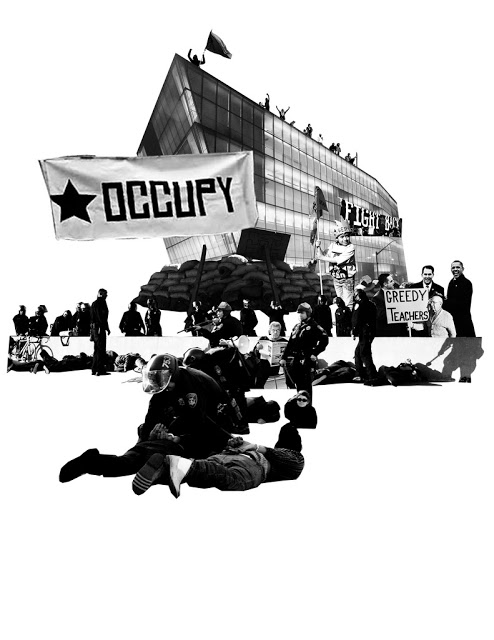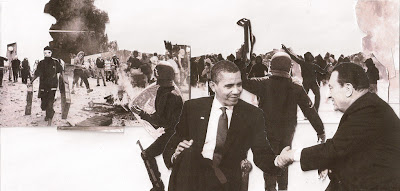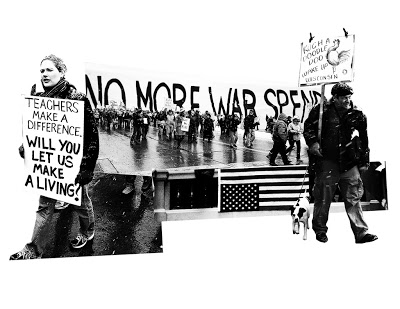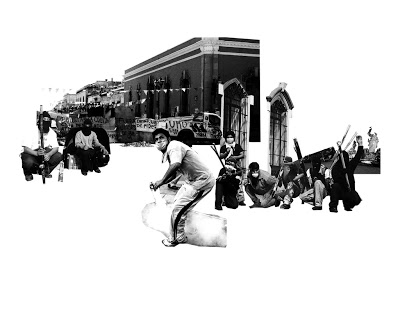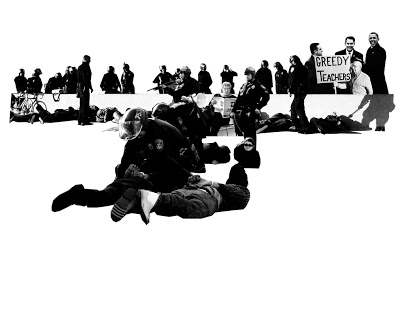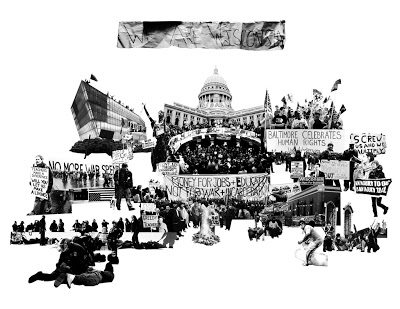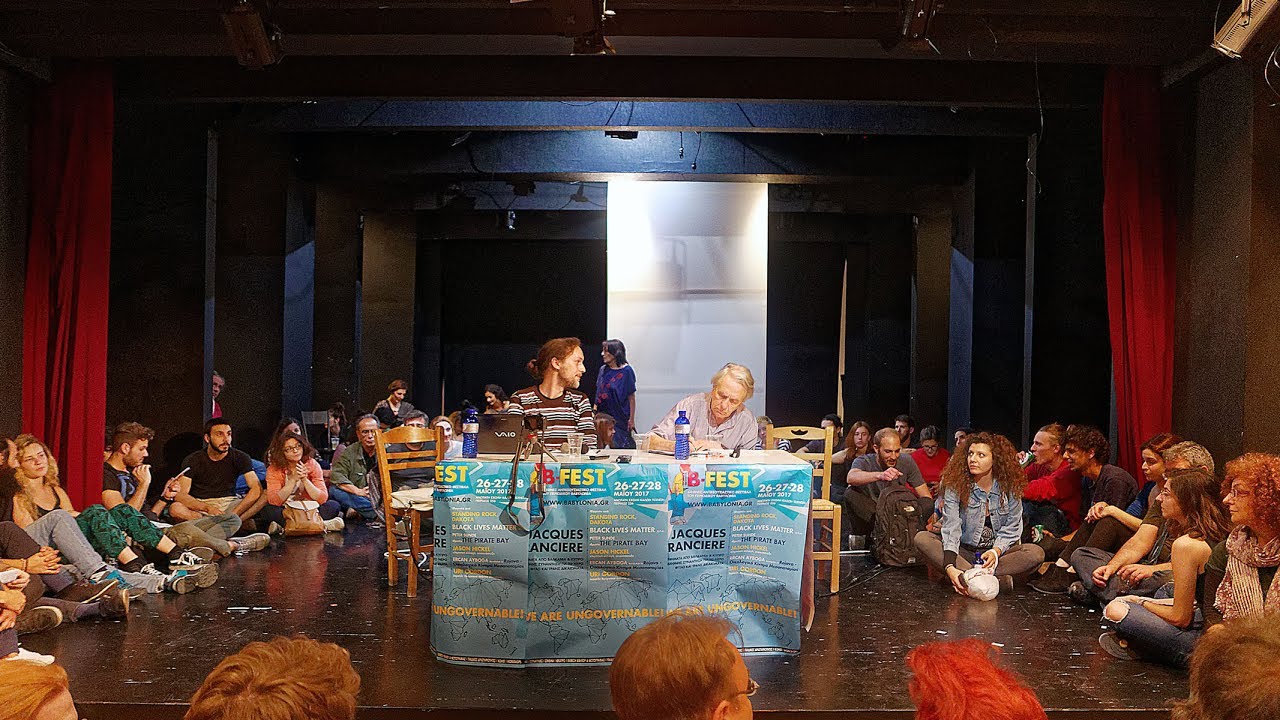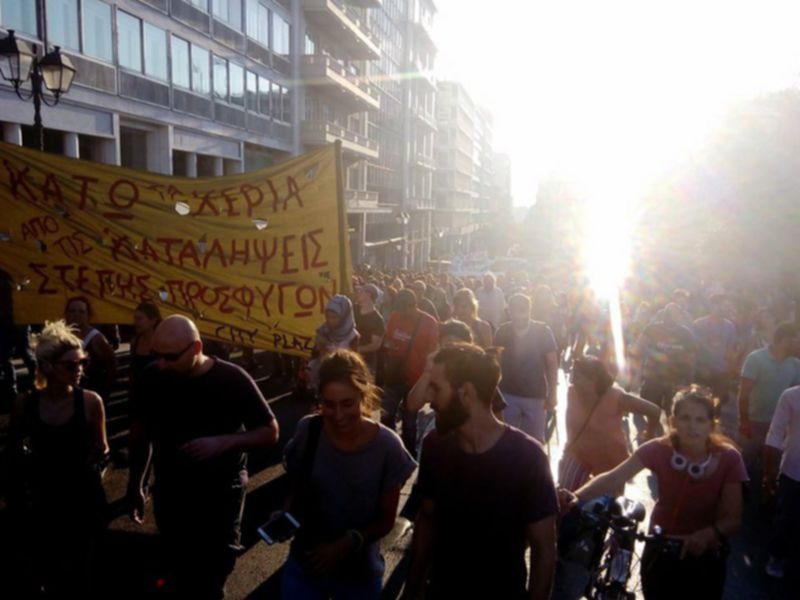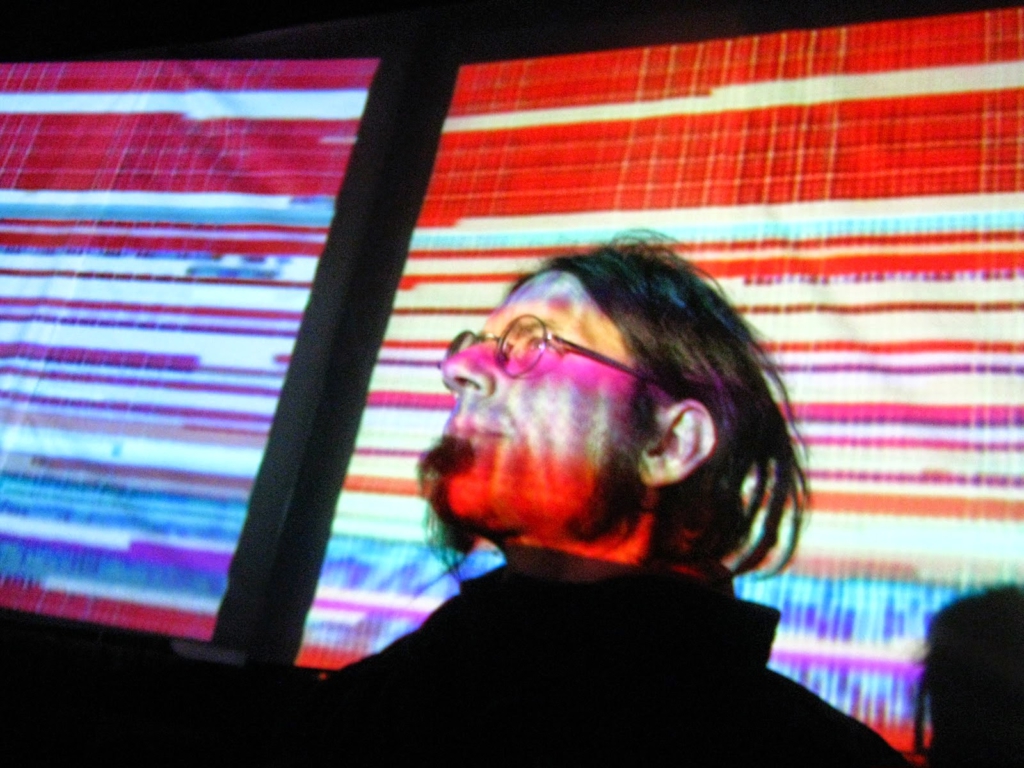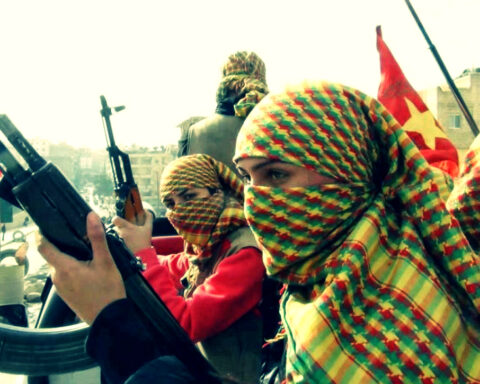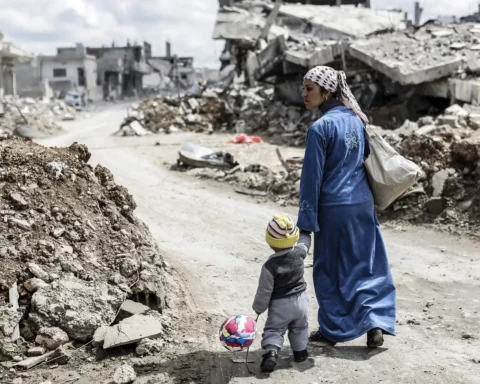Many people wonder what it is that these new ‘occupy’ protests can accomplish, and have trouble envisioning the so-called “ends” of the movement. But the beauty of what is happening is not found in the “ends”, but the “means” that has been chosen. Politics is changing, and we can and should push it to be more localized.
Politics, as many of us are accustomed to thinking of it, usually boils down to what has been called the ‘politics of demand’. The politics of demand can be understood as the coming together of three interlocking ideas
1. Asking someone else to solve something
A group with grievances ‘demands’ that a specific existing institution ‘fixes’ the problem, sometimes with minor input from the grieved group. This reinforces the authority and power of the institution in question, whether that institution is a corporation, government agency, or whatever else. *These institutions exist to silence these demands in any way they can that alters the status quo as little as possible* The more we ‘demand’ from them, the more we rely on them, and the more power they will have. It also has a tendency to hide, exacerbate, or multiply the source of those grievances.
2. Vertical organizing
In order for the aggrieved group to interact “efficiently” with authority, representatives are chosen and given negotiating powers, goal making powers, and general decision making abilities that are not afforded to the rest of the group. Internal power structures quickly form and become entrenched, keeping the large majority (99%, anyone?) from actually participating in anything but being a warm body at an event, or possibly a signature or a vote… anything but a meaningful and engaged participant.
3. Education before action
There is a very high tendency, in this normal mode of politics, to assume that everyone doesn’t agree with (x) or doesn’t know how to understand or do (x) correctly because they need someone to tell them what’s “really wrong” with whatever…. which, when you think about it, is kind of insulting.
—
On the other side of the spectrum we have the Occupy Everything movement. Or, at least this is what I think makes Occupy so much more engaging than anything else that has happened in contemporary politics. These diffuse movements currently exemplify what has been called the ‘politics of the act’, which can also be understood as three interlocking ideas.
1. Acting without begging for permission
Instead of asking for an institution to solve some grievance, the aggrieved group acts in creative ways in order to begin solving it’s own problems. This may lead to some ‘demands’ being met, but does not start from making ‘demands’, and therefor cannot be told to sit down and be quiet when (x) demand is supposedly met. Occupying wall street without a permit is a prime example of this. It is a beginning, a call out to those who would like to build something better. It comes down to the idea of building alternative (horizontal) networks to the obviously corrupt (vertical) system we have, without asking permission from that very system.
2. Horizontal organizing
Horizontal’ refers to an idea of equality, that we should all be interacting on a level playing field, a horizon. So horizontal organizing is a reference to organizations that prioritize no particular personality, but allow for anyone to participate how they can, when they can. This creates a network that has no ‘leaders’, but where everyone is capable of acting in temporary leadership (spokesperson) roles. Equality in organizing. Once again, the way that the Occupy movement has been acting is a prime example of this, with the general assemblies, the human mic, and the generally ‘open-source’ type network building online and on the ground.
3. Equality of action
We are all equally alive, and have our own experiences, which do not negate the experiences of others. It is from these personal experiences that we must act, not from external commands or teachings. We are individuals. We all have the capacity to act, when and how we see fit, guided by our own experiences. These experiences are what have inspired thousands of people, many of whom had never bothered with a protest before or had given up, to come out and Occupy Everything. If we continue to act from our own experiences in this way, and build up an individualized yet communal experience of building and of resistance to corrupt systems, we can change everything, and we can do it ourselves.
The strength of the Occupy Everything movement so far is how closely it has generally stuck with the politics of the act and rejected the politics of demand. My hope in pointing this out is to add to and expand our collective experiences, hopefully in a way that pushes us farther and farther towards those better worlds, because other worlds truly are possible, as long as we act to make them. We are not asking for a new world. We are not demanding a new world. We are creating it.
Concepts that can be useful:
Self-Organization
Being forced into a group can certainly improve ones skills in some senses for some people, but nothing seems to work better than a group that simply seems to ‘click’, when people just decide to get together themselves, without being directed. No-one knows who you get along with and what you do better than yourself.
Free Association
Life is not static, and who we act and discuss with should not be either. Free association is the ability to freely enter and leave groups according to preference
Direct Action
When someone acts in order to further their ideas and goals without resorting to another group for mediation. Direct action simply refers to our capacity to act directly in achieving goals and resolving issues. It is an older and possibly narrower way of talking about the politics of the act
Mutual Aid
Though many seem to think that we are inherently and strongly competitive, we are in fact what biologists call a ‘social’ species, we have evolved to work in groups. Competition, of course, occurs within and between the groups we form, but a high tendency for cooperation is what got us through most of the problems we’ve historically encountered as a species. Mutual aid refers to this capacity for cooperation with others, a capacity that we would be wise to act on.
Demand Nothing
Occupy Everything
Occupy Everything
text found: http://news.infoshop.org/article.php?story=20111025114601766
photo-colaz found: http://friendsofibnfirnas.blogspot.com/
more info about Occupy Everything: http://occupyeverything.org/

